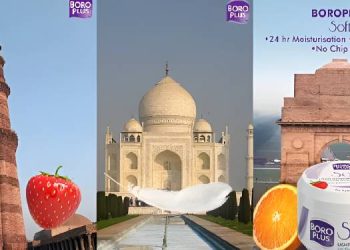The government is expected to come out with guidelines for paid promotions by influencers shortly. Mandatory declarations of the same are expected to kick in.
We asked a cross section of people from the influencer ecosystem if, in their view, such declarations would dilute the efficacy of influencer posts. And also, what the impact on influencer marketing would be in the short and long run. Here’s what they said.

Raminder Singh – Founder & CEO, Celebfie
This declaration will definitely have an impact on the influencer marketing space but it of course won’t dilute the efficacy of the influencers. On the brighter side, it’s a positive development for this new booming industry as this proves that the government has recognised it as a mainstream business worthy of regulations. It may instill a sense of responsibility, making the influencers more credible for the brands and products they represent and endorse. This may also lead to setting more clear expectations between both the brands and the influencer community.
The new guidelines may not have a major impact on influencer activities but there could be a drop in influencer brand campaigns initially. Also, one has to look into the final guidelines and reforms to comment on how it will directly affect the ecosystem in the long run. Right now, we can only guess that it’ll make brands and the influencers more careful and intentional about their partnership, which will also result in a positive outcome for the consumers. The end customers have a right to know what content has been paid for by brands and these guidelines should bring transparency in the influencer marketing space. It should result in viewers having even greater trust in influencers and brands.

Deepak Sakhuja, Co-founder, Ripple Links
Audiences today are extremely savvy when it comes to influencers and the brands that they promote. By and large, they already have the knowledge to understand which posts have a paid element. Certain influencers such as Danish Sait and Kenny Sebastian, even include tongue-in-cheek mentions in their paid videos that draw attention to the fact that they are being paid for the activity. Given these considerations, declarations are unlikely to dilute the efficacy of influencer campaigns.
Macro influencers will be minimally impacted by the guidelines because they, as a practice, call out paid collaborations through the usage of the Paid Promotion tag or #ad. We have observed Micro and Nano creators to be a discerning lot who quickly sense the trend and immediately adapt to it. Their digital journey validates this phenomenon. The guidelines are likely to bring a sense of order to this segment.

Ankur Pujari, Co-Founder of Hyper Connect Asia
Every new policy has its pros and cons. Here also there are many pros to both parties, consumers and content creators.
For consumers, it helps them differentiate between a real review over a paid ad; they can exercise their discretion.
For content creators also it works in a more transparent way, showcasing their collab with the brand as a sign of credibility over the rampant increase of fly-by-night influencers who don’t even research well at times and try to show association with brands to show their credibility.
Such an upfront tag will in a way dilute the efficacy of influencer posts as consumers who would have otherwise consumed a few seconds of content before realising that it’s a paid promotion will now skip it by reading the tag.
So in the future content creators will need to work like celebs and become a brand based on their original content, then earn endorsements from brands for collaborations and then reach out with paid promos. It will surely help filter out a lot of noise from the clutter.

Ankit Agarwal, Founder & CEO, Do Your Thng
The majority of our creator ecosystem already adheres to ASCI guidelines, which require sponsored content to be labelled as paid with appropriate hashtags. So, the government making them mandatory won’t cause a staggering shift. Rather, it adds a layer of regulation to the influencer marketing niche, and in the long run, that’ll help make the industry more organised. And no, the disclosures don’t dilute efficacy for two simple reasons. One, the current consumer is extremely attuned to filtering out ads. They know when a post is paid, irrespective of whether it is explicitly demarcated as such or not. Two, the power of influencer campaigns lies in the content creation ability of the influencers. They turn prosaic into extraordinary, so an everyday outfit becomes #OOTD. That’s the most valuable asset for brands, and it remains so even with the guidelines in place.

Ritesh Ujjwal, Co-Founder and CEO, Kofluence
With the imposition of TDS on all freebie products that influencers receive from brands a few months ago and now with the more stringent rules on paid promotion disclosures, influencers in India may be feeling the heat. But it is important for them to realise that they wield significant influence on the thoughts, opinions and purchasing power of their audiences, and being socially responsible with their content is extremely critical. While in the beginning some may show scepticism, I believe in the long run it will only do more good than bad. I see this as a change in the right direction, considering how much audiences today value authenticity and transparency from the influencers they follow and look up to.
I believe it will bring a greater sense of transparency between influencers and the users that engage with these posts. Audiences today are mature enough to understand that influencers do partner up with brands for paid promotions as a part of their revenue stream. There are a plethora of full-time content creators out there that are dedicatedly working on curating quality content and in the process, making a sustainable livelihood out of branded promotions. With these new sets of disclosures, it will be more important than ever for them to be responsible with the kind of collaborations they take on, which only comes with knowing one’s niche and audience likes and dislikes.
However, we will still have to see exactly how these new guidelines will be structured to be able to comment on how far-reaching consequences they may have.

Anjali Malthankar, National Strategy Director, Tonic Worldwide
In the digital-first era, focus from official bodies on the entire digital marketing spectrum is a natural reaction as brands and consumers are all on the same platform influencing each other. While ASCI has already attempted to do so in the interest of the consumers, the Centre’s guidelines will be adding a stamp of approval on some of them in intent. There are two sides to this action. Consumers and brands. Consumers will start seeing influencers as advertisers/broadcasters of the brands rather than reviewers. On the other hand, brands will have to look at the usage of influencers afresh. Maybe this change will lead clients to consider influencers more for top of the funnel awareness than the bottom of the funnel.

Shajesh Menon, CEO and Founder, Younion
There are many sides to this story – while some micro/niche influencers are particular about calling out sponsorships, some brands discourage influencers to declare collaborations because they want the content to seem like an organic, seamless fit. Some just hide an “#ad” under a long caption, and some use a multitude of vague call outs like #gifted #paid #sponcon – which a typical viewer can’t decode. On the flip side, adding a brand collaboration tag, reduces viewer interest and kills engagement. With new guidelines, come new responsibilities for both sides of the spectrum. As the market opportunity booms, this could be a step towards an evolved influencer ecosystem, well-defined regulated promotions, and making the influencer marketing tactic a permanent fixture in every marketing mix.
Like any other form of marketing, influencers need to operate within the box and follow certain directives. From transparent declaration of endorsements, to unbiased opinions by thought leaders, to ethical brand practices when engaging with influencers, these guidelines will help streamline the whole ecosystem without a doubt. However, a lot of it will depend on what the guidelines actually are and eventually decide the way forward. That’s the long and short of it!

Ambika Sharma, Founder & MD, Pulp Strategy
The influencer marketing industry is growing very fast and is now a Rs.3,000-crore industry in the country. So, its size and growth has caught government attention. The clauses seeking honesty of statements and due diligence, and conditions laid for expert endorsements will put unnecessary litigation burden on influencers. Especially micro influencers may become over cautious as they don’t have resources for a potential litigation.
A simple and mandatory disclosure specifying the paid content and their personal experience on its usage could solve the problem. The guidelines may scare smaller influencers and in turn deter the growth of the digital advertising industry for a while, but may benefit in the long term. In the long run, this will lead to more responsible behaviour in the digital marketing ecosystem.
The move will actually benefit the ecosystem in the long run, formalising the industry in recognition as well as endorsement.

Appurva Hooda Bhoker, Head Of Business & Expansions, The Girlfriend Box
These guidelines have always been in place by the ASCI, although not legally enforceable but yet mandatory under the code of advertising practice.
Many creators who do not fully grasp the legalities or are not under able management for whatever reasons do not adhere but as an agency, we do consider it a mandate. So no, I do not think it should dilute the efficacy of the campaigns, regardless – the audiences are smart enough to differentiate between paid and unpaid integrations these days.
The impact is accountability. In the short run, it will eliminate certain artists from the mix because it will make it very clear for the brands which artists work and which don’t. In the long run, we get the long overdue accountability that the audiences deserve from the key opinion leaders. It is a welcome addition to the way we view social media and understand its implications.

Arushi Gupta, Business Head, Influencer.in
The implemented guidelines would not affect the efficacy of the posts being put out by the influencers. Influencer marketing has grown to become one the primary modules of marketing. Every brand wants to focus on getting the best faces for their campaigns. The guidelines will just make everything much more transparent and ethical considering Influencers will now be required to openly claim the brands they collaborate with.
In the beginning, there will be reluctancy, especially from a brand point of view. It is obvious that there are monetary exchanges between brands and influencers. The new rules will help safeguard everyone involved in the collaboration. In the long run, the guidelines will set a benchmark for transparency, hence helping the influencer ecosystem.

















